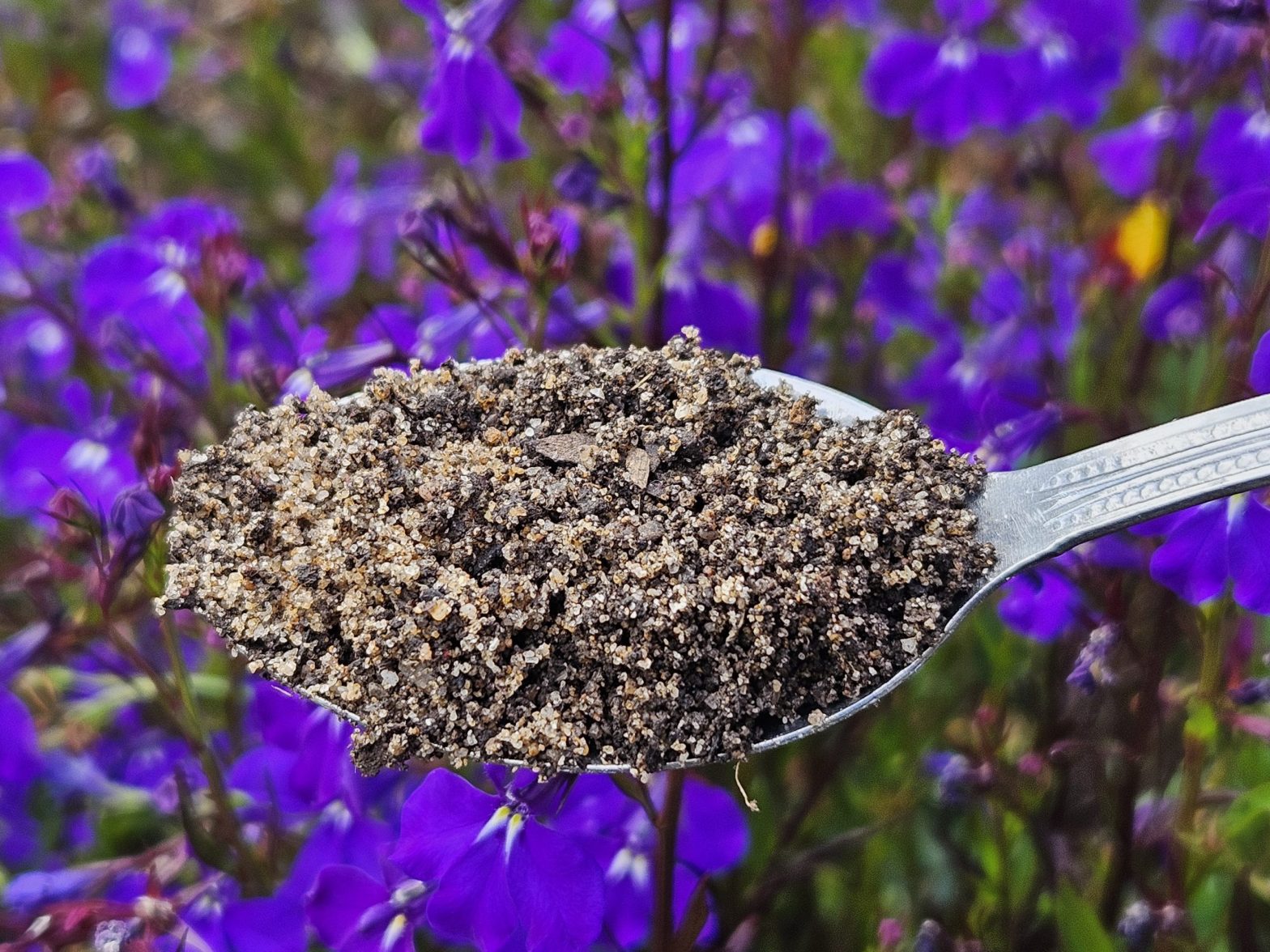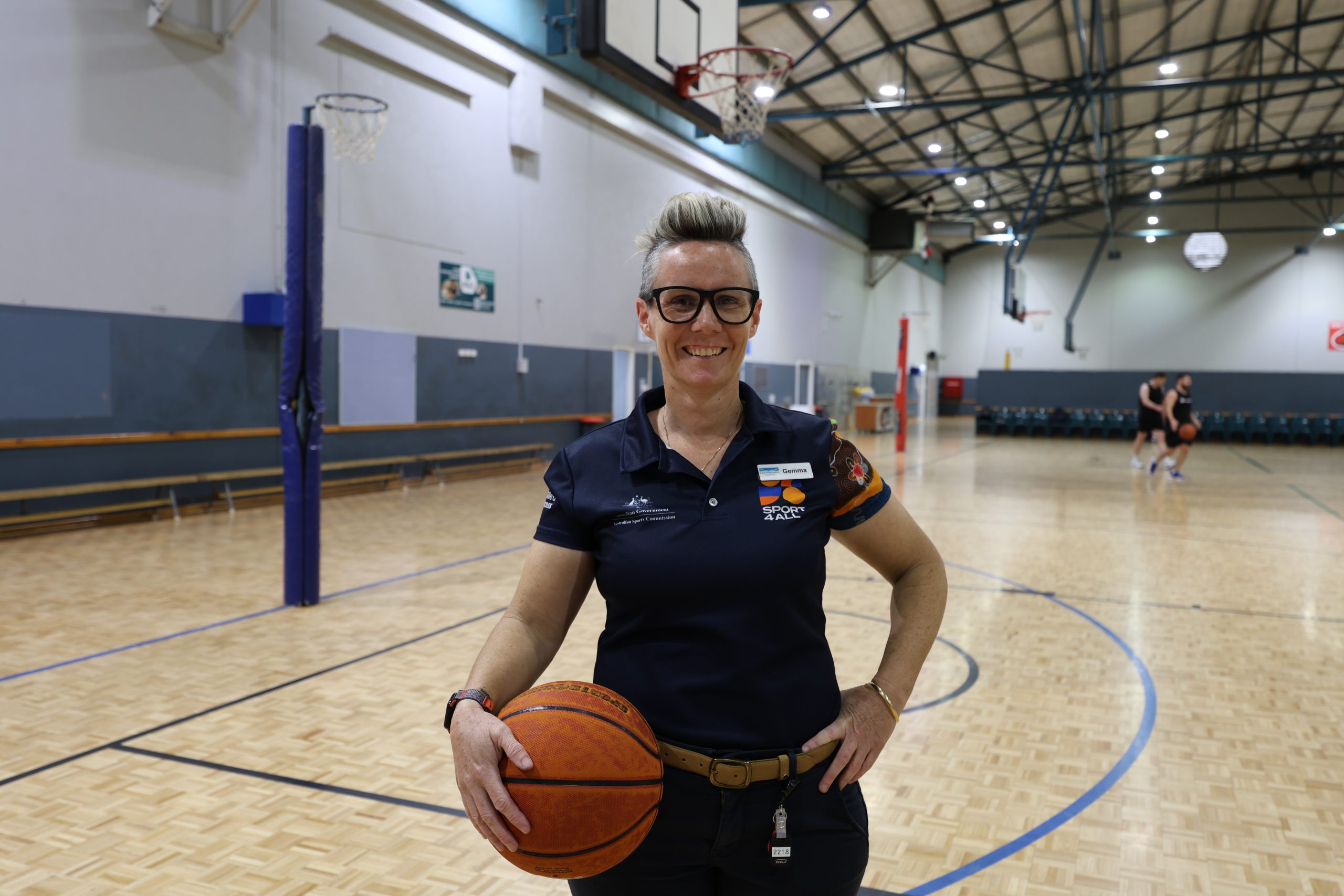Focus your energy on soil health | In Your Patch

Local gardening expert Terri Sharpe says soil microbe activity is crucially important in almost all plant processes. Image supplied.
So… fine weather, warmer soils, still the odd day of rain – everything’s really starting to hum.
Have you got your tomato, beans, cucumber, sweet potato, pumpkin, lettuce, tromboncino, watermelon, rockmelon, zucchini, sunflowers, and strawflowers in the ground yet?
If not, get to it!
Summer seasonal fruit and veg are so worth the time and energy.
Pull up and compost or cut below ground level everything that’s at the end of season and dedicate your prime space to tomatoes, cucumbers, pumpkins, zucchini and any other favourite summer veg.
Save space for corn, cuca melon, and basil, those you can plant in November.
If you invested in a cover crop – good on you.
Chop and drop, wait for some decomposition (a week or two) and then plant directly into the bed.
Latest research tells us that soil microbe activity is crucially important in almost all plant processes, with much of it occurring between plant roots and surrounding soil.
So don’t pull those root balls out.
Instead, cut back all plants to below ground level and leave root balls in the ground.
I tend to cut everything off just below ground level, apply some manure and a layer of mulch, aerate by sticking a pitchfork into the soil if it’s a bit heavy or compact taking care not to turn it or hit any retic, leave it for a week or two, and then plant.
The only root balls I bother to remove are those that restrike, like cabbages (and you won’t even get another cabbage, you’ll just end up with leaves prone to pest and disease attack because they’re growing in the wrong season), or those that are super hard and dense, like corn or sunflowers for example.
Any of the tall, stalk like veg will have a strong root ball as they need to be strong to stop whatever is growing above them from blowing over.
Everything else I cut back the plant and leave the root ball in the ground.
We need to start treating our soil like a living thing – as of course it is – so we need to nurture and protect it.
Give it warmth, water, protect it from harsh sun, wind and rain with cover (even weeds are preferable to no cover, just don’t let them go to seed), feed it with organic fertilisers, and it will repay your time and dedication tenfold.
I bang on a bit about mulch but I really can’t stress how important it is.
Get it onto your beds now before the sun dries them out.
And as I said above, even a cover of weeds is better than nothing – if you don’t allow them to seed and spread uncontrollably.
What role does mulch play in the health of your garden?
We all know it conserves water by reducing soil temperature and evaporation, but it also impedes weed growth, can act as a barrier against pests, enhances nutrient content as it breaks down, helps reduce erosion, increases beneficial microbe populations, and looks good.
If that list doesn’t convince you, I’m not sure what will!
And you may already know that there’s billions of microorganisms in a teaspoon of fertile soil, but did you also know there’s up to 50 000 different species of microbes?
It brings new meaning to the adage – variety is the spice of life!
Finally, it’s time to do retic maintenance.
Be sure to check all sprinkler heads for flow rates and coverage.
If you have lawn, apply a fertiliser as the growth rate is phenomenal at this time of year.
An application of weed and feed may be of benefit, and there’s some good lawn seeding kits available for any bare patches that developed over winter.
Check your mower over, making sure blades are sharp.
You may like to thatch your lawn if it’s become thick and spongy.
My final word this month is on feeding.
Try to change your mindset to feeding your soil, rather than individual plants.
If your soil is healthy, your plants will follow.
Treat your soil as a living entity, as you would a prized plant.
With that in mind – keep it moist, warm but not hot, protected with mulch, and fed with organic manures, compost, worm teas, and worm castings (a little often is better than a lot infrequently).
Happy gardening.
Terri Sharpe is Coordinator and Garden Specialist of the Margaret River Primary School Kitchen Garden Program and a Horticultural lecturer at South Regional TAFE.
Got a gardening question? Email journalist@margaretrivermail.com.au


















